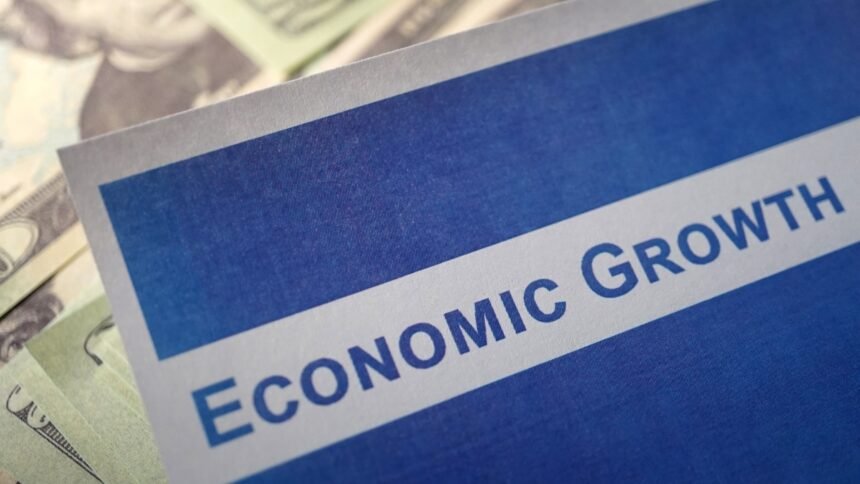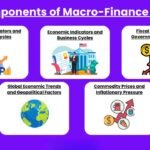Economic resources play an essential role in the growth and development of any economy. These resources are the building blocks that help drive production, influence trade, and create wealth across countries. In this blog, we will explore the various types of economic resources, their significance, and how they shape the way nations, organizations, and individuals approach economic challenges and opportunities. From labor and capital to natural resources and entrepreneurial skills, the effective management of these economic resources is vital to maintaining long-term prosperity. Understanding these assets is critical for anyone seeking to grasp the basics of economics and how they apply to real-world situations.
What Are Economic Resources?
Economic resources, frequently known as factors of production, are the inputs needed to produce goods and services. These resources are finite and must be allocated efficiently to meet the needs and goals of society. Broadly speaking, economic resources are divided into four main categories: land, labor, capital, and entrepreneurship. Each of these resources has a unique role in the production process and contributes to the overall economic health of a region or country.
Land
This category encompasses all natural resources available for economic use, including raw materials such as minerals, forests, water, and land for farming or housing. These resources are essential for a wide range of industries, from agriculture to construction.
Labor
Labor refers to the human input required to produce goods and services. It includes both physical and intellectual work, and its efficiency and productivity are closely tied to the education and skills of the workforce.
Capital
This includes physical assets such as machinery, tools, buildings, and infrastructure that are used to produce other goods and services. Capital also refers to financial resources that businesses use to fund operations, expansion, and innovation.
Entrepreneurship
The drive to organize the other three resources and take on the risks involved in growing new products, services, and industries is entrepreneurship. Entrepreneurs are critical in determining how resources are allocated and can often lead to innovation that sparks economic growth.
These economic resources are not only crucial for production but also for how wealth is distributed and how economies grow or stagnate over time. How these resources are utilized, conserved, and transformed can substantially impact a country’s economic development.
The Importance of Efficient Allocation of Economic Resources
Efficient allocation of economic resources is key to maximizing productivity and fostering sustainable growth. In economic theory, the concept of “opportunity cost” helps explain how resources need to be allocated effectively. Every decision made about the use of resources carries an opportunity cost—that means that choosing one option typically results in the forgoing of another opportunity.
For instance, when a country decides to invest heavily in infrastructure development, it may have to cut back on investments in education or healthcare. While the country may enjoy growth in the short term, this trade-off can have long-term effects if the education and health systems suffer. Therefore, governments and businesses must carefully consider their priorities and manage resources effectively to maintain a balanced and strong economy.
According to economist Paul Samuelson, “The proper allocation of economic resources is the cornerstone of any successful economy.” This insight highlights the necessity of using resources in ways that promote overall societal well-being and long-term sustainability. It also underscores the need for strategic thinking and planning in resource management.
Natural Resources: The Foundation of Economic Development
Natural resources are often seen as the backbone of economic development, particularly in countries that rely heavily on agriculture, mining, or energy production. Countries rich in natural resources, such as oil, gas, and minerals, can leverage these assets to fuel their economy. However, challenges arise when natural resource wealth is mismanaged or depleted unsustainably.
Take, for example, the oil-rich country of Venezuela. While the country’s significant oil reserves initially contributed to significant economic growth, the lack of diversification and over-reliance on oil exports led to an economic collapse when oil prices fell. This highlights the danger of failing to allocate resources in a way that promotes long-term stability.
On the other hand, countries like Norway have invested their natural resource wealth into sovereign wealth funds, using the capital to ensure future economic prosperity while oil reserves begin to dwindle. This smart investment strategy has allowed Norway to maintain high standards of living and financial stability.
The Role of Labor and Human Capital in Economic Resources
Labor, or human capital, is one of the most important yet often undervalued resources in an economy. A highly skilled and educated workforce drives productivity and innovation, which in turn fosters economic growth. The importance of human capital cannot be overstated—countries that invest in education and training programs tend to have higher levels of economic development.
In the U.S., for example, the technology sector has flourished in part because of the country’s ability to attract and retain highly skilled workers from around the world. This labor force, equipped with specialized skills in engineering, coding, and digital technologies, has helped companies like Apple, Google, and Microsoft thrive globally. In contrast, economies that fail to invest in their workforce may struggle to compete in the global market.
The focus on lifelong learning and adaptability is becoming increasingly important as automation and artificial intelligence continue to reshape industries. As a result, the allocation of resources to education and workforce development is critical for any nation looking to maintain its competitive edge in the 21st century.
Capital and Investment: Building the Foundations for Future Growth
Capital is the driving force behind economic production. Physical capital—such as factories, machinery, and technology—allows businesses to expand and increase output. But financial capital is equally important. Without access to funding, businesses cannot grow, innovate, or adapt to changing market conditions.
In the context of a rapidly changing global economy, the availability of capital is crucial for innovation and expansion. Venture capital has played a pivotal role in the success of startups and small businesses. By providing financial backing for new ideas, investors help entrepreneurs take risks and turn their visions into reality. The ability to raise capital, whether through venture funding or traditional loans, enables businesses to compete on a larger scale and contribute to economic growth.
The Impact of Entrepreneurship on Economic Resources
Entrepreneurship ties all the economic resources together by turning ideas into action. Entrepreneurs take on the risks of organizing land, labor, and capital to create something new. They are the ones who identify opportunities in the marketplace and determine how resources will be allocated to seize those opportunities.
As technology continues to evolve, the role of the entrepreneur has expanded beyond traditional industries. The digital economy has provided new avenues for entrepreneurs to explore, from tech startups to social media-driven businesses. These new ventures often require fewer physical resources but a great deal of intellectual and digital capital.
Entrepreneurial ventures are particularly important in economies that are looking to diversify their industries and create new sources of revenue. Countries such as Israel and Singapore have used entrepreneurship to transition from being resource-poor to thriving economies through a combination of technology and innovation.
Conclusion: The Balance and Future of Economic Resources
Economic resources are fundamental to the functioning of any economy. Their efficient management is crucial for sustaining long-term prosperity and addressing the challenges of a constantly evolving world. While natural resources provide the initial foundation, it is human capital, capital investment, and entrepreneurial spirit that shape an economy’s future.
As the global economy continues to grapple with issues such as climate change, technological disruption, and inequality, the ability to manage and allocate economic resources will be a key determinant of success. Nations, businesses, and individuals must work together to ensure that resources are used sustainably and wisely, with an eye toward innovation and inclusivity.
In a rapidly changing world, the most successful economies will be those that not only harness the power of their natural resources but also invest in human capital, foster entrepreneurial innovation, and ensure the equitable distribution of wealth. By striking the right balance, economies can build the foundations for future growth and prosperity.






